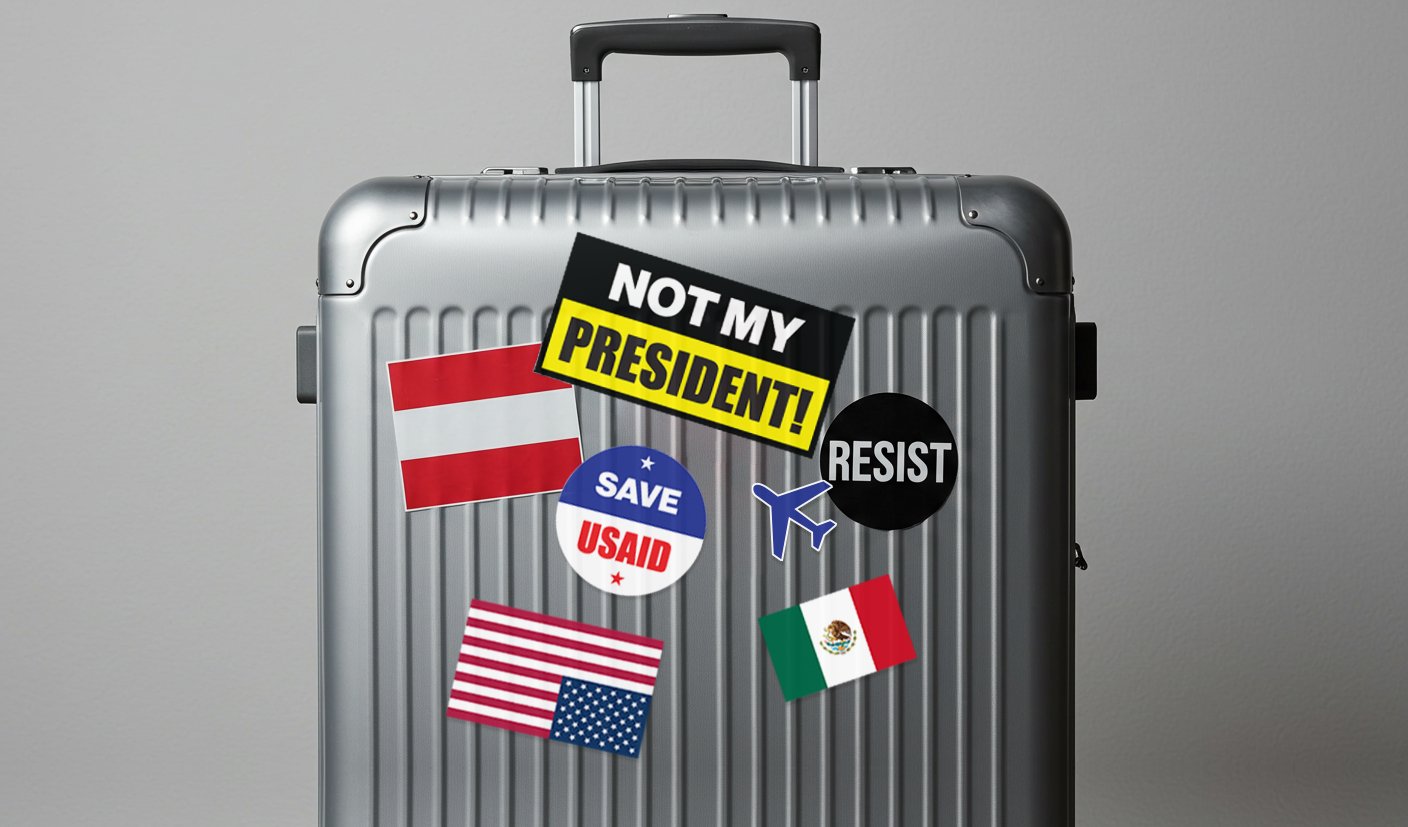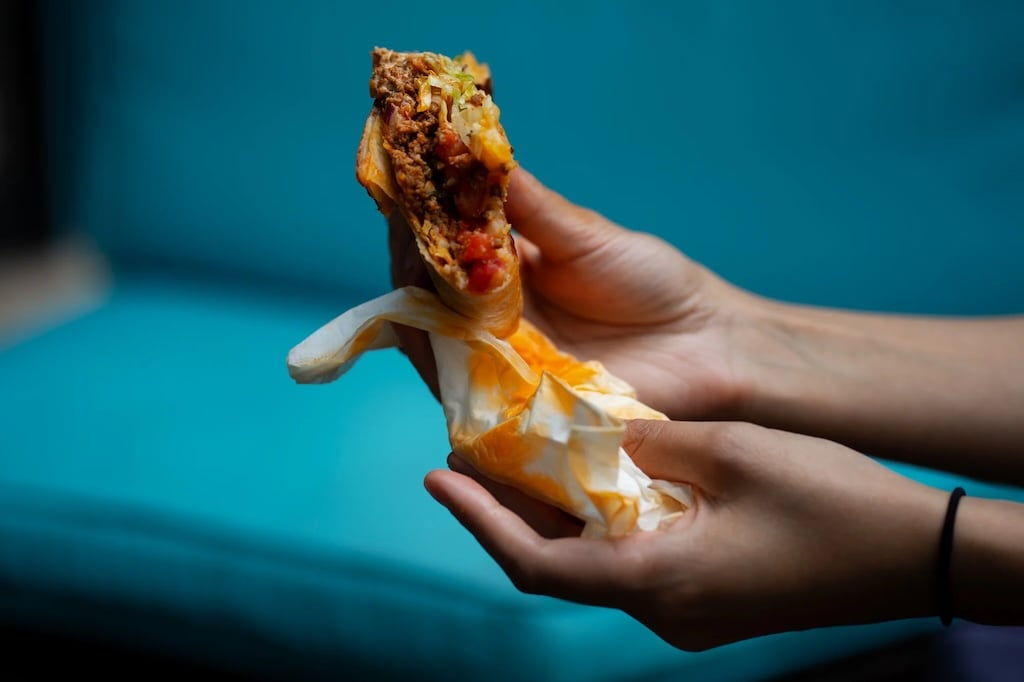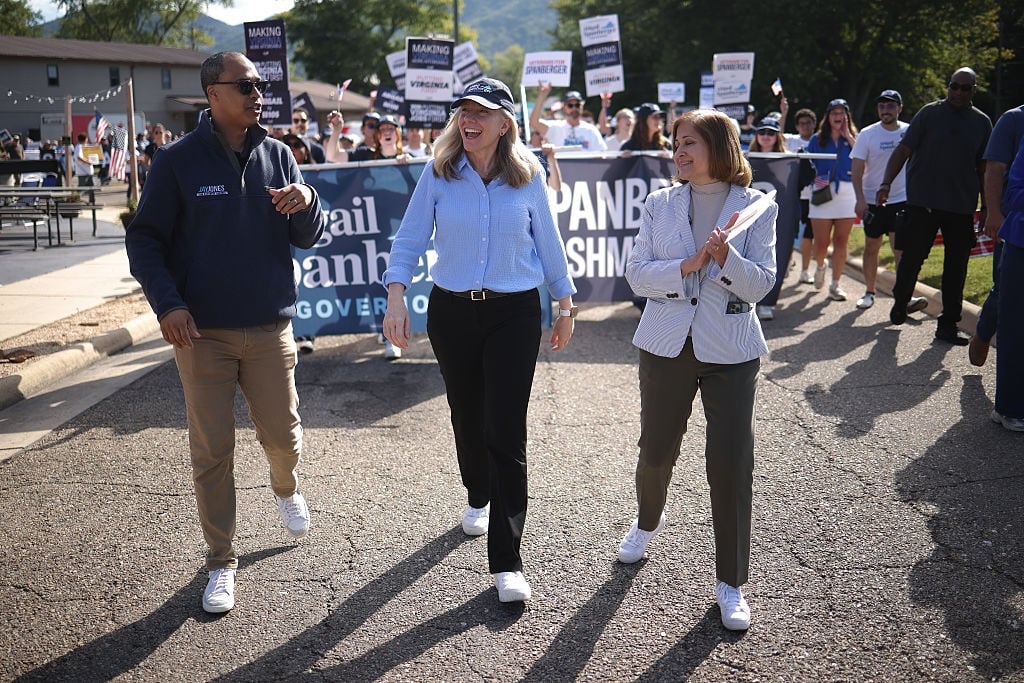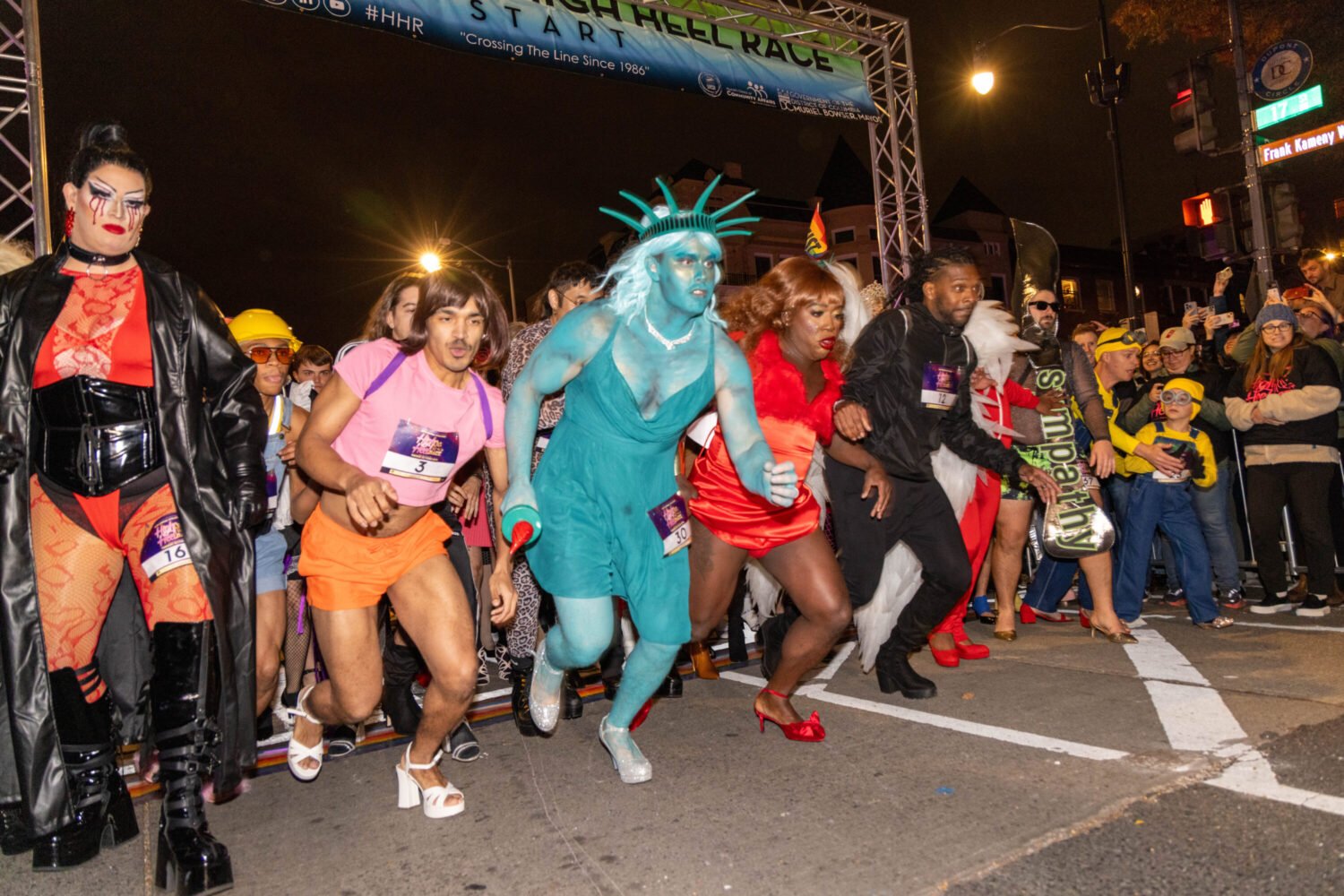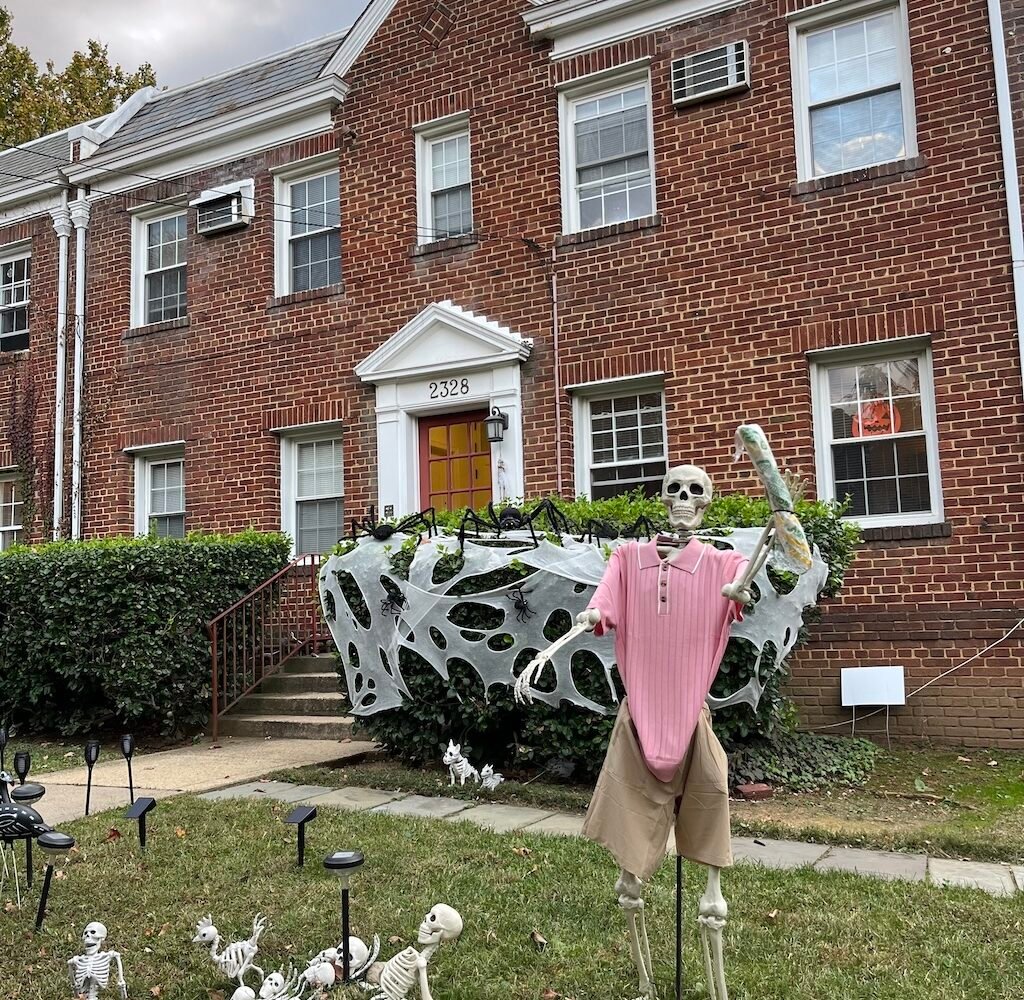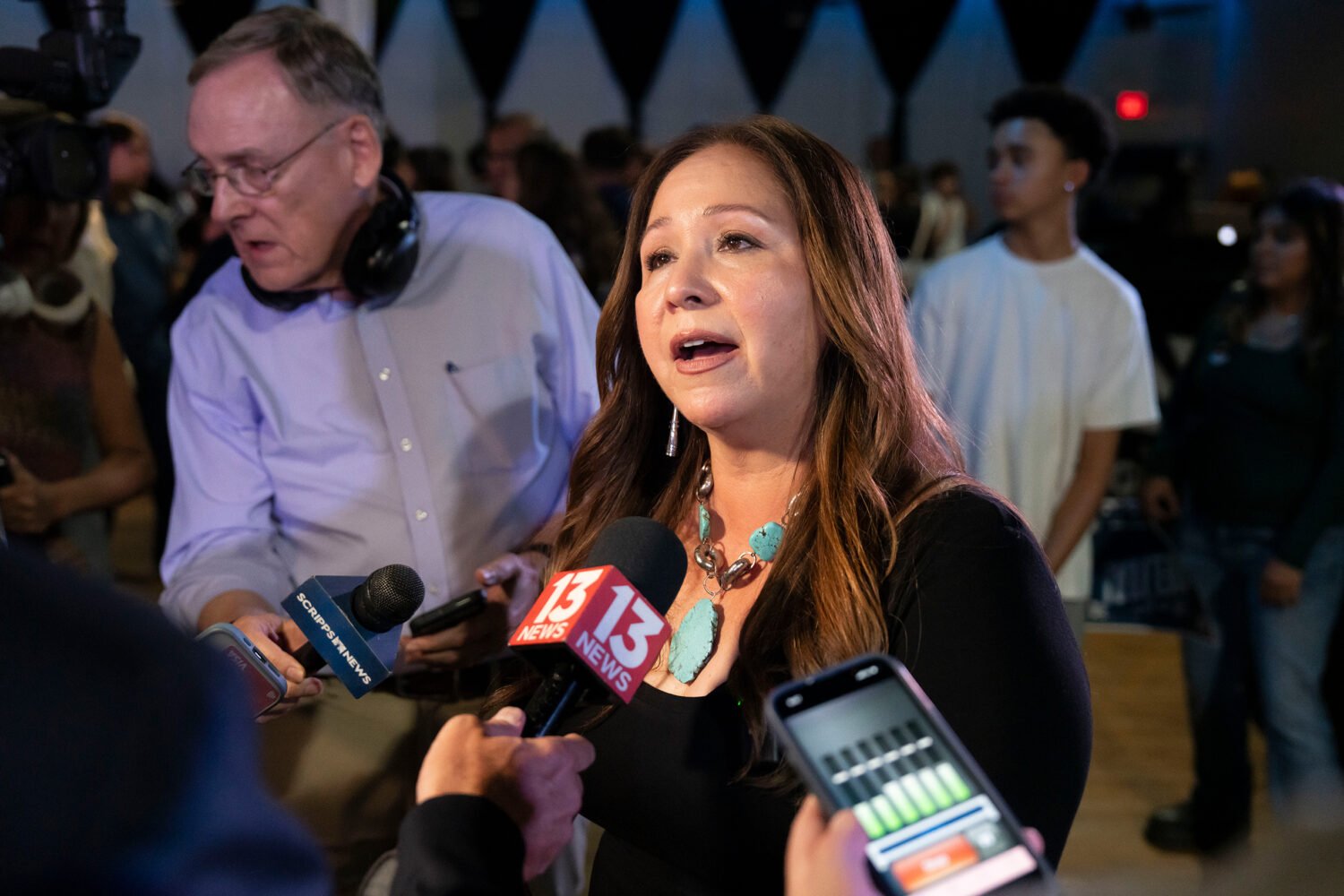Before Barack Obama came here as a United States senator, before Adrian Fenty was elected DC mayor, the two met in Boston at the 2004 Democratic National Convention.
Both were legislators on the rise—Obama an Illinois state senator running for the US Senate, Fenty a DC councilmember contemplating a run for mayor. Both had a black father and a white mother. Both were part of the post-civil-rights political establishment.
Fenty had read about Obama and sought him out before the keynote speech that vaulted Obama to national attention. “I found him to be a very open personality,” Fenty says. “We promised to stay in touch.”
The two met again a year later. Dinner with the new senator was an auction item to raise funds for DC’s Shepherd Elementary School; the winners of the Obama dinner invited Fenty, still a councilmember, to join them in the Senate dining room.
The night Fenty won the mayor’s race in the fall of 2006, Obama called to offer congratulations.
So it was no great surprise when Fenty endorsed Obama, but the support did not come without a commitment. “I told him we had one issue that he needed to get behind,” Fenty says. “As long as he gave total support to full voting rights for the District representative in the House, he would get my complete support.”
Obama agreed, and Fenty campaigned for him all over the country.
The notion that a DC mayor could have a personal relationship with an incoming president is unusual if not unprecedented. Fenty is not alone among regional leaders in his ties to Obama, who enters the White House with more connections to area politicians than any president in memory.
“He likes us, we like him,” says Alexandria congressman Jim Moran. “Bush had almost an animosity against Washington. I think Obama will be very good for the metropolitan area.”
During the presidential campaign, Obama stumped at least eight times across Virginia, a state that had not voted for a Democrat since 1964. He often had Governor Tim Kaine by his side.
Senator Jim Webb took Obama through his turf in the state’s southwestern mountains. Mark Warner, the popular former governor running for the US Senate, worked hard to bring money and votes to Obama’s camp. Virginia went for Obama.
Maryland was safely on his side, but it distinguished itself in two ways.
“Maryland was the biggest volunteer export state, second only to California,” says Congressman Chris Van Hollen, who represents Montgomery and parts of Prince George’s counties. “On a per-capita basis, I believe we were number one in campaign contributions.”
As chair of the Democratic Congressional Campaign Committee, Van Hollen was good at raising cash and helping rising politicians. Before Obama won the Democratic nomination, he visited Van Hollen.
Van Hollen spoke often with Obama aides David Axelrod and David Plouffe: “We wanted to make sure candidates in Virginia benefited from the Obama effect.”
Van Hollen succeeded Illinois congressman Rahm Emanuel as head of the DCCC. Emanuel is now Obama’s White House chief of staff. “I do have Rahm on speed dial,” Van Hollen says.
DC delegate Eleanor Holmes Norton came out early for Obama and campaigned for him. It was payback: Obama was the star attraction at a 2006 fundraiser for Norton.
Many presidential candidates run against Washington, and some treat the region around their home on Pennsylvania Avenue as if it were hostile territory. They fly in and out, entertain at state dinners, hold Rose Garden ceremonies, welcome visiting dignitaries, ride through the streets in motorcades. Then they leave.
Some have loved the city. John F. Kennedy lived in the District for 14 years as a congressman and senator before moving into the White House. So he and First Lady Jacqueline welcomed Washington into the White House and socialized around town. Washington was Camelot; Camelot was Washington.
Lyndon Baines Johnson was a Texan by birth, but after decades in Congress, he was a Washingtonian by the time he became president. He loved the city and showed it by starting the District on the path to home rule. First Lady Lady Bird Johnson took her beautification projects all over the region.
Richard Nixon—as congressman and vice president—also made Washington his home. He strolled up 16th Street to have dinner at Trader Vic’s. It was President Nixon who signed DC’s Home Rule Charter in 1973.
Jimmy Carter ran against Washington in 1976. In the aftermath of the Watergate scandal, he arrived with his Georgia mafia and promised to clean house. The peanut farmer never settled into the capital city; he was a stranger when he left four years later.
If Carter wanted to reform the federal government, Ronald Reagan wanted to make it smaller. To Reagan, permanent Washington might as well have been part of the “evil empire.” He escaped as often as possible to his western White House in California to chop wood.
George H.W. Bush early on was a Texas oilman but spent most of his working years in Washington as a congressman, diplomat, CIA director, vice president, and president. He and Barbara lived in DC, and they were gracious to the city and its people.
Bill Clinton, like Jimmy Carter a Southern governor, started off as the Georgian had. He arrived with his Arkansas crew, including Mack McLarty, Webb Hubbell, Betsey Wright, and Vince Foster. But he and First Lady Hillary Rodham Clinton gradually meshed with the city. He jogged the streets and ate at local restaurants; she visited local schools. Daughter Chelsea went to Sidwell Friends, took classes at the Washington School of Ballet, and brought friends home for sleepovers.
George W. Bush seemed to dislike the capital and all it stood for. He stayed in town even less than Reagan had and made few forays beyond the White House. He showed little regard for government workers. “He totally undermined the strength of the civil service,” says Van Hollen.
John McCain and Sarah Palin ended their campaign with attacks on Washington and the federal work force. Obama advocated change in Washington, but he didn’t demonize the city. His targets were George W. Bush, lobbyists, and the forces that stood in the way of change.
It’s plausible to say that Barack Obama won the Democratic nomination thanks to the Washington region.
Last February, Obama and Hillary Clinton were running even when Democrats in Maryland, Virginia, and DC came together in the first-ever Potomac primary.
Obama had beaten Clinton in small states and in states that voted by caucus; she had won the big states such as Pennsylvania and Ohio. Could he take Maryland and Virginia?
In previous elections, primary contests in the Mid-Atlantic region had been almost irrelevant. Maryland, Virginia, and DC held their primaries on different days after the Super Tuesday balloting. Terry Lierman, a force in Maryland and national Democratic circles—now Maryland congressman Steny Hoyer’s chief of staff—saw an opportunity.
By joining forces and voting as one, Lierman figured, voters in the three jurisdictions could have more impact. A year before the primary season, he ran his idea by DC councilmember Jack Evans and Mayor Adrian Fenty. Both signed on, they brought in Virginia Democrats, and the Potomac primary was born.
“It was a calculated risk,” Lierman says. “It turned out to be a home run.”
Obama trounced Clinton in the February 12 Potomac primary, proving that he could appeal to Democrats in major states, and went on to victories in the South.
“The placement of the primary and the timing worked out great for the region,” says Van Hollen. “It put us right in the middle of things and helped Obama build momentum.”
The Washington region is home to most federal agencies, from the Pentagon in Arlington to the National Institutes of Health in Bethesda to Goddard Space Flight Center in Greenbelt to the Department of Justice along Pennsylvania Avenue. About 14 percent of the federal workforce, or 266,000 people, is located in this area.
“Barack Obama values the independent judgment and expertise of civil servants,” says Van Hollen. “The Bush administration politicized the civil service. It did significant damage, especially by sending a message to scientists that their work would be manipulated for political purposes. There was a tremendous loss of expertise and an undercutting of morale.”
Says Van Hollen, whose district is home to NIH and many other federal agencies: “You may see some functions the Bush administration contracted out folded back into the federal government. Obama wants to attract people whose number-one job is to serve the public.”
With Obama as president and Van Hollen a key link between the White House and Congress, a priority will be to see that the DC representative gets full voting rights. “I think we will be able to get that through,” says Van Hollen.
DC delegate Eleanor Holmes Norton, who has represented the District in Congress since 1990, is able to vote in committee but not on the House floor. As a senator, Barack Obama cosponsored a bill in the last Congress to give DC full voting rights. President Bush threatened to veto the law if Congress passed it.
“I don’t think we will have that problem with an Obama administration,” she says.
On November 17, Jim Moran invited political leaders from around the region to dinner at his home in Old Town Alexandria. He wanted to introduce two new Virginia congressmen, Glenn Nye and Tom Perriello. “Almost everyone came,” Moran says.
The group included Steny Hoyer and Donna Edwards from Maryland. Eleanor Holmes Norton was there. Mark Warner spoke. It was a gathering of what could become the Potomac Caucus.
“It makes sense for us to have a coalition that meets regularly,” Moran says.
The coalition would include leading power brokers in the House and politicians with direct ties to the White House. What would it hope to accomplish for the region?
“We’ve got to fund the Metro past Dulles airport,” says Moran. “We must have a stronger public-transportation system. We’re overburdened with car congestion.”
Says Van Hollen: “Support for public transit will greatly help our region. Obama knows federal workers rely on Metro. He’s a believer in public transportation.” Funding the Purple Line through Maryland’s suburbs is one of Van Hollen’s priorities.
Cleaning up the Chesapeake Bay is another critical challenge. Efforts to improve the bay are stuck, in part because federal funds are hard to come by.
Moran has been trying to close down the Mirant coal-fired power plant in Alexandria. Emissions from the plant contribute to poor air quality across the region, he says, and “the Bush administration did all it could to thwart our efforts to close it down.”
Moran cautions against expecting miracles, but he feels certain Obama will have a positive impact on the federal workforce. “I think he will attract the best and the brightest to serve in the federal government,” Moran says. “I am hoping for the enthusiasm of the Kennedy administration.
“I am more optimistic now than I have ever been in all my years in Washington.”
Adrian Fenty is optimistic that Obama will do more than help DC get full voting rights in Congress. Standing on a hilltop in Northeast DC, with a view of the Capitol in the distance, Fenty ticks off his wish list:
“Vouchers for affordable housing and community block grants—these projects don’t get done without federal help,” he says. “More police on the street.”
Fenty says cleaning up the Chesapeake Bay begins with cleaning up waterways like Rock Creek and the Anacostia River.
Schools chancellor Michelle Rhee is looking to Obama for support in her crusade to reform DC’s troubled public schools. Ensnared in a battle with the teachers union, she’s hoping Obama will weigh in on her side.
Fenty has bet his political future on promises to improve the schools. It just might be that the state senator he befriended in 2004 will help him make good on the bet.


